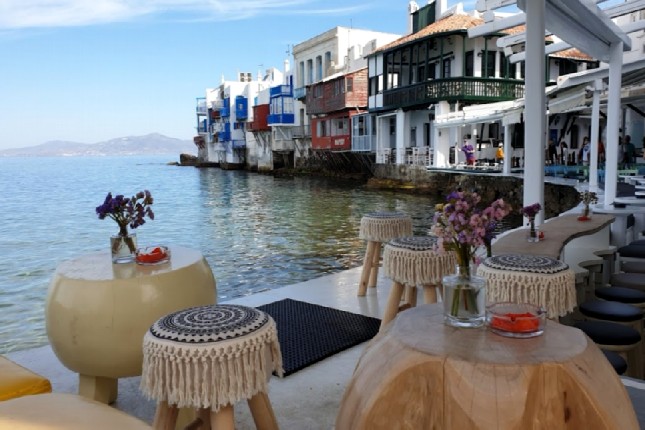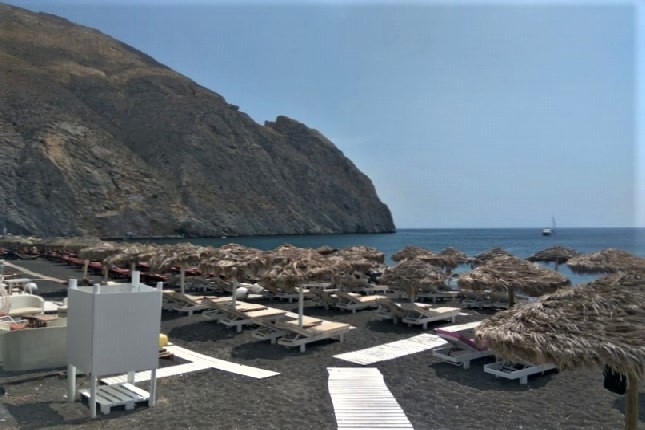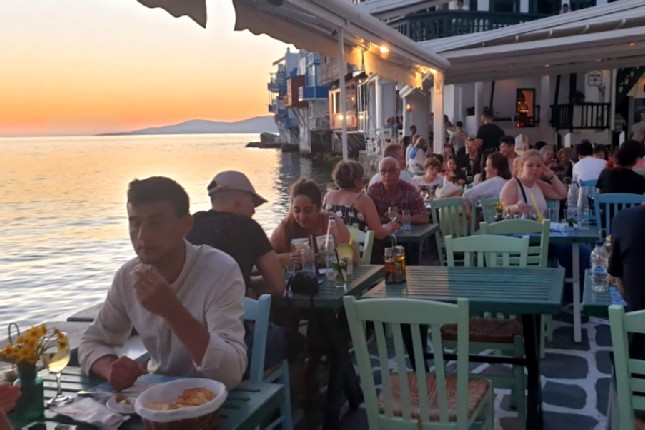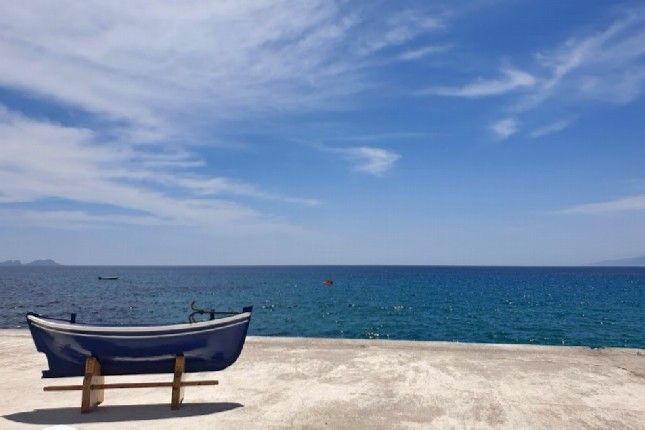Greece is so rich in culture and natural beauty that it should be visited at least once in a lifetime! With thousands of years of history and alluring attractions, it's no exaggeration to say that Greece is a real heaven on earth. If you're planning to visit, here are 15 FAQs for first timers to Greece. This information will provide you with all the necessary information and help prepare for your trip.
1. Do I need a visa?

Greece is a party to the Schengen Agreement and therefore visa-free for citizens traveling for up to 90 days from the EU and most countries in the Americas. This means that travelers from the United States, Canada, and Australia need only a passport valid for three months beyond the end of your visit.
2. How do I get to Greece?
By far, the fastest and easiest way to get to Greece is to fly. There are direct flights to many Greek destinations from all major airports. If you have more time, then driving or traveling by train can be enjoyable, although probably more expensive than flying. Ferry companies operate between Italy and Greece all year round. But one of the best ways to visit Greece is on a cruise. Surrounded by sea and with thousands of beautiful islands, cruises offer first-timers to Greece the opportunity to visit several different places over a short period of time. So, it's no surprise that Greece has been named as the best cruise destination in the world by the cruise industry's Wave Awards.
3. How do I get around in Greece?
If arriving by air at the Athens Eleftherios Venizelos International Airport or any of Greece’s airports, reach your preferred destination in luxury and comfort with The Travel Insiders’ airport transfer services. The Travel Insiders guarantee excellent and reliable transportation to and from your hotel. Discover the diverse attractions by choosing among archaeological sites, culinary gems and outstanding beaches in the area. If in Athens for a few days and have had the good fortune of exploring the city, you may opt to discover more of the surroundings with one or even a few of the top 10 day trips from Athens.
The port of Piraeus is the main port of Athens where cruise ships and ferries dock. From there, and other ports of call in Greece, The Travel Insiders offer port transfer services and hand-picked once-in-a-lifetime shore excursion adventures to fulfill your every desire. First timers to Greece can explore the capital, the Greek islands, or villages off the beaten path in the Peloponnese.
4. How many days should I spend in Greece?

Obviously, first timers to Greece won’t be able to see the whole country on one go, therefore, the best tactic is to pick a few places and spend one or two days in each. Ideally, you want to give yourself at least a week in Greece to visit the major ancient sites and spend some time on the islands soaking up the sun. This will allow you to get a good sense of why Greece is beloved by so many travelers. If you can, add on another few days to take in the various Greek cities and treasures of antiquity.
There may be few truly perfect cruise-ship destinations in the world, but Greece is definitely one of them. Cruising in Greece allows first-timers to Greece to explore more places in less time since you will be traveling at night on your floating hotel. Most cruise itineraries include Athens, the Greek capital, major places of interest on the mainland and the Peloponnese, like Ancient Olympia and Nafplio and the most popular of the Greek islands, such as Santorini, Mykonos & Delos Islet, Corfu and Kefalonia. The Travel Insiders’ shore excursions help to make the most of your time at each port and present a satisfying mix of local culture, delicious Mediterranean food, stunning scenery, ancient ruins and historical sites.
5. What is the currency?
Greece is a European Union member; euros have been the official currency of Greece since 2001. Having some euros in your pocket when you arrive can give you peace of mind for the start of your trip. Banks will have the best exchange rates and are open from 9:00 to 14:00. But your best bet in getting local currency is to use your debit card via ATMs located everywhere throughout Greece.
6. Are credit cards widely accepted?
Cash is king in Greece! While most shops and hotels accept credit cards, many smaller businesses and restaurants do not. ATMs are available in airports and cities, but smaller towns and villages may only have one or even no ATMs available. It is best to have a decent amount of cash for small purchases or emergencies. And travelers’ cheques are definitely not an option.
7. What’s the weather like in Greece?

Greece has a Mediterranean climate with four seasons and, generally, extended periods of sunshine throughout most of the year. Summers are usually hot and dry, and winters can be fairly cold and wet. Spring is pleasant and sunny in Greece. Summer-like weather still prevails in autumn, especially in the south and on the islands. The average daily temperature in July and August is 26 °C (79 °F) in the coastal areas but can reach 28 °C (82 °F) in the central districts. Maximum temperatures of 38 °C (100 °F) are not rare.
8. When is the best time to visit Greece?
Most will agree that the best time to visit Greece and the Greek Islands is autumn, September to mid-October, or spring and early summer, mid-April to mid-June. This way, you'll avoid the tourist-packed high season and the summer heat. Heat waves of 40 °C (100 °F) are common in August.
9. Do most people in Greece speak English?

Although the official language in Greece is Greek, virtually everyone in the tourist service industry speaks English. Also, English is part of the standard school curriculum, therefore, most people have a good command of English as well as a few other languages. Greek is a particularly difficult language to pick up, so no one will be upset if you do not speak any Greek. Greeks are friendly people who are always eager to help and love it when they hear a stranger speaking their language. So, when planning your first-time trip to Greece, try to learn a few common Greek words like ‘please’ (parakalo), ‘thank you’ (efharisto) and ‘hello’ (yasou) and you will get a favorable response as you try to communicate with the locals.
Street signs in the cities are typically bilingual, but if you’re heading further afield, it’s worth learning the Greek alphabet as well to help you navigate.
10. Is Greece a kid-friendly destination?

Greece is a kid-friendly destination and one of the most welcoming places to be traveling with the little ones. With perfect weather, ‘Blue Flag’ beaches and many activities for children, Greece is a great destination for family vacations all year round.
Greece is home to crystal-clear seas and endless sandy beaches which are safe for children. The wide range of water sports, like swimming and snorkeling, and beach activities, like building sandcastles, will ensure that they never get bored.
With the many historical sites and monuments which may be found around the country, kids can learn history and mythology in a fun way. They will love the stories of the ancient gods and their powers. In Ancient Olympia, kids can make myths come alive as they run the Olympic track where Hercules first participated and even make their own olive wreaths and challenge each other for the crown! In addition to ancient sites, there are medieval forts for them to explore in Nafplio, Chlemoutsi or Methoni.
Last but not least, your kids will absolutely love the food! In most Greek tavernas and restaurants, you will find delicious homemade food ideal for children. The fresh fruits and vegetable and the olive oil are ideal ingredients for a healthy Mediterranean meal.
11. Is Greece safe?
Greece is considered one of the safest destination countries in the world. Travelers are, of course, advised to use the normal precautions that they would in any other European country. Be cautious of pickpockets and never keep money or valuables in your back pocket. Also, be aware of transfer scams, particularly from the port of Piraeus or the airport, so be sure to only use licensed transfer services.
12. What should I pack?

Whether you are planning to spend most of your time relaxing by the azure of the Aegean or exploring historical sites, there are certain items you shouldn't forget when you are packing. Make sure to include good walking shoes, light clothing, sunglasses, sun cream, a bathing suit, and a hat. Water shoes are always a good idea especially if you plan to visit pebbly beaches like the volcanic beaches of Santorini. Also, a light sweater will come in handy for the chilly evenings. A plug adaptor may be necessary for your chargers and gadgets as Greece has 220V electricity, and don’t forget your camera!
13. What is the food like in Greece?
In a land blessed with salty deep blue seas, warm sun and rich fertile soils, the plethora of Greek flavors will rival anything you have ever had before!
If you love fresh ingredients, then you will find plenty of sensational dishes to choose from. Hot garlic tzatziki, black Kalamata olives, feta cheese and Greek salad are just to name a few of the mouth-watering appetizers. Vegetables cooked in tomato sauce and olive oil or moussaka are favorites among first-timers to Greece. On the Greek Islands, you will find fresh seafood everywhere; charcoal grilled octopus, fried calamari, shrimp in tomato sauce and lobster pasta. The best companion for any meal under the sun is a refreshing ouzo on the rocks! And when it comes to Greek street food, the famous souvlaki tops them all!
As for breakfast, do like the Greeks and enjoy a Greek coffee or frappé with a hot, straight-from-the-oven cheese pastry (tyropita) from one of the corner bakeries.
14. Is the water safe to drink?
The water is safe to drink in most places in Greece. In Athens and other cities and large towns, tap water is drinkable. However, in some towns or villages and in most islands, it is better to ask beforehand or simply stick to bottled water.
As plastic pollution is increasing in Greece, it’s best not to contribute to the problem. If you must buy bottled water, remember to keep the beaches clean and throw all plastic into the recycling bins.
15. What is the tipping culture in Greece?

Tipping in Greece is by no means a requirement, however, it is greatly appreciated. As there are no standard rates, a good evaluation indicator would be to consider the tipping standards in your home country. Anywhere between 5% to 15% would be satisfactory according to the service provided. At restaurants or cafés, make sure to give any tips directly to servers in cash as it is quite common for them not to receive tips included on credit card transactions. Gratuity is also appreciated by hotel staff, drivers and tour guides.
Ready to start planning your first-time trip to Greece? Contact us today and let our specialists assist you in making your first-time visit to Greece a reality.





